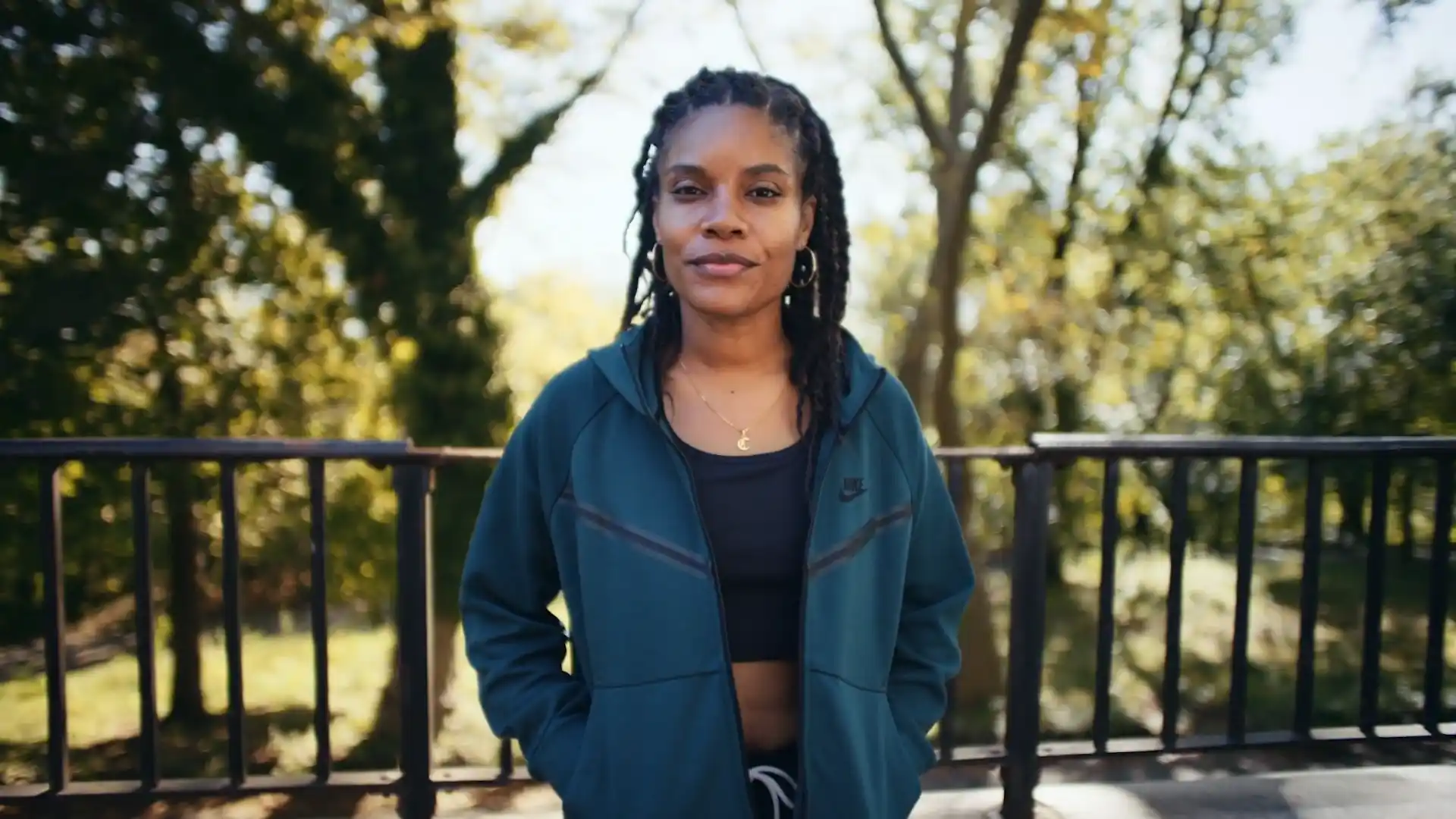
From Play to Power: Empowering Athletes, Building Brands, Changing Communities
Athletic brands represent more than logos and endorsement deals — they are the foundation for creating future leaders. Community sports programs serve as proving grounds where teen athletes build authentic personal brands and develop skills that transfer directly into professional and leadership environments.
“We know that 94% of women that hold executive-level positions — whether in the C-suite or as directors — have one huge thing in common: they played youth sports.”
— Chiene Joy Jones
In this episode of BABES BALLS & BRANDS™, host Janet Moreira explores this truth with Chiene Joy Jones, founder of Grow Our Game. Her nonprofit demonstrates how strategic brand development happens through community-based basketball programming. Jones shows how athletes from under-resourced New York City neighborhoods grow into confident leaders and workforce-ready professionals, using sport as a vehicle for comprehensive development.
With her experience as a Division I athlete at New York University, athletics director, and coach, Jones brings two decades of proven expertise in developing talent. Her work in East New York, Brooklyn, and Harlem proves that quality programming delivers returns far beyond athletic scholarships — preparing young people for leadership in every aspect of life.
Janet’s background as a Board-Certified Intellectual Property attorney and sports mom frames the conversation around how athletic brand development intersects with leadership training, NIL opportunities, and long-term community investment. Together, the two highlight actionable strategies for sports families who want more than wins on the scoreboard.
Building Community Through Basketball Growth
Jones launched Grow Our Game in 2018 with six girls on what she remembers as the coldest winter day of the year. That first practice — small but powerful — set the tone for her organization’s relentless commitment. Today, the program serves more than 275 athletes.
This growth is more than numbers. Families spread the word, and partnerships with organizations like Nike and the New York Liberty validated the program’s credibility. The expansion reflects a simple truth: authentic value and consistent quality attract opportunities and community trust.
Jones’ credibility as both a former college athlete and administrator resonates with parents navigating tough choices about youth sports. Her insight bridges coaching, leadership, and brand development, showing families what sustainable athletic growth really looks like.
The 94% Factor: From Youth Sports to Executive Success
One of the most compelling takeaways: 94% of women in executive roles played youth sports. This reframes the conversation about the value of athletic programming. It’s not just about chasing a scholarship — it’s about building transferable skills like resilience, teamwork, and leadership that translate into lifelong success.
Jones emphasizes reframing traits often criticized in young women — assertiveness, initiative, competitiveness — as leadership strengths. This approach develops both mental toughness and confidence, equipping athletes for challenges in academics, careers, and life.
Through partnerships with programs like New York City’s Summer Youth Employment Program, Grow Our Game also integrates workforce training. Athletes gain paid work experience while staying connected to basketball, demonstrating how sports can create multiple pathways to success.
Breaking Financial Literacy Barriers in the NIL Era
Jones and Moreira also explore a critical gap: financial literacy. Jones shares her own experience as a college athlete without guidance on banking, credit, or money management. That lack of education, she argues, is still holding athletes back today.
With NIL opportunities expanding, financial education is no longer optional. Athletes need to understand budgeting, credit management, and long-term planning. For families with little experience in these areas, community programs play an essential role in bridging the gap.
Jones also points out how NIL is opening new opportunities for female athletes. Brands increasingly see women’s sports as smart business, driven by data that shows high engagement, loyal fanbases, and authentic storytelling. This shift reframes women’s sports from a charitable cause to a profitable investment category.
For young athletes, this means the playing field is evolving. Female athletes who might not generate the same media coverage as their male counterparts still have significant value to brands looking to connect with diverse and socially engaged audiences. Jones highlights examples of athletes turning their passions — from community service to lifestyle content — into brand partnerships that reflect authenticity and long-term value.
Authenticity, she emphasizes, is the common thread. NIL deals aren’t just about the biggest stage or the most points scored; they’re about alignment between an athlete’s personal brand and a company’s values. Athletes who consistently create content around genuine interests — whether it’s fashion, wellness, social justice, or community engagement — are more likely to attract meaningful partnerships.
This perspective is especially important for sports parents and families. Instead of focusing solely on highlight reels or scholarships, Jones encourages families to support athletes in developing a holistic presence that reflects who they are beyond sports. By nurturing interests, encouraging community involvement, and modeling financial literacy, parents help their children lay the foundation for authentic and sustainable brand building.
For Jones, the power of NIL isn’t only in the deals themselves but in how it forces a broader conversation about athlete readiness, education, and long-term growth. Programs like Grow Our Game illustrate that when communities invest in developing athletes as whole people — leaders, thinkers, creators — the ripple effects extend far beyond sports.
Conclusion: Building Champions Beyond the Game
As the conversation with Chiene Joy Jones makes clear, athletic brands are no longer limited to uniforms, highlight reels, or NIL contracts. They are built every day through community programs, mentorship, and the life skills young athletes carry with them into adulthood. From resilience and teamwork to financial literacy and leadership, the development that happens on the court or field creates ripple effects that last long after the final whistle.
For sports families, the takeaway is powerful: investing in authentic athletic brand development is about much more than athletic success — it’s about preparing young people to lead, innovate, and thrive in every arena of life.
Whether it’s choosing programs that emphasize character, encouraging consistent storytelling around genuine interests, or ensuring athletes have access to financial and leadership training, families play a critical role in helping athletes turn potential into purpose.
This is the mission at the heart of Grow Our Game and the stories we share on BABES BALLS & BRANDS™ — building champions who will succeed in boardrooms, communities, and businesses, not just on courts or fields.
Ready to hear more? Listen to the full conversation with Chiene Joy Jones on BABES BALLS & BRANDS™ and discover how sports can be the ultimate blueprint for building leaders.
Follow BABES BALLS & BRANDS™ and Janet Moreira:
Website: BabesBallsBrands.com
Twitter/X: BabeBallBrand
Instagram: Babes.Balls.Brands
Follow Janet Moreira:
LinkedIn: Janet Moreira
Instagram: thenilattorney
Instagram: thejanetmoreira
YouTube: @thenilattorney
Caldera Law: janet-moreira
Book Free NIL Consultation: Janet Moreira
Follow Chiene Joy Jones:
LinkedIn: @chienejones
Instagram: @chienejoy
Follow Grow Our Game
Website: GrowOurGame.org
Twitter/X: GrowOurGameny



Comments